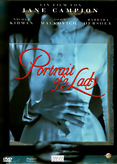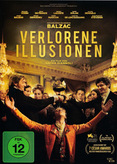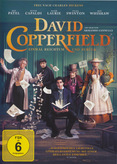1799 wird die junge, italienische Witwe Marquise von O. (Edith Clever) von dem russischen Offizier Graf F. (Bruno Ganz) gefangen genommen. Während einer Ohnmacht wird sie von ihm vergewaltigt, doch sie glaubt, er hätte sie gerettet. Monate später erscheint der totgeglaubte 'Retter' und hält um ihre Hand an. Langsam wird ihr klar, dass ihre Schwächeanfälle eine Schwangerschaft bedeuten. Ein handfester Skandal scheint seinen tragischen Lauf zu nehmen...
Eine schuldlos von einem russischen Grafen geschwängerte Marquise wird - nachdem ihr Zustand ruchbar geworden ist - von den Eltern des Hauses verwiesen. Heinrich von Kleists Novelle wurde in Éric Rohmers sensibler Verfilmung zum demonstrativen Gegenteil eines sentimentalen Dramas. Mit Sinn für die Absurdität der Geschichte legt Rohmer die ironische Moralkritik der Vorlage bloß, um daraus ein heiteres Plädoyer für die praktizierte Menschlichkeit jenseits bürgerlicher Konventionen zu entwickeln. 'Die Marquise von O.' (1976), eine Verfilmung der Novelle von Heinrich von Kleist, die die ironische Moralkritik der Vorlage bloßlegt.
Weiterlesen »
In 1799, the young Italian widow Marquise von O. (Edith Clever) is captured by the Russian officer Count F. (Bruno Ganz). During a fainting, she is raped by him, but she believes he has saved her. Months later, the 'savior', who was believed to be dead, appears and asks for her hand in marriage, slowly realizing that her fainting spells mean pregnancy. A tangible scandal seems to be taking its tragic course...
A marquise who has been impregnated by a Russian count through no fault of her own is expelled from the house by her parents after her condition has become notorious. Heinrich von Kleist's novella became the demonstrative opposite of a sentimental drama in Éric Rohmer's sensitive film adaptation. With a sense of the absurdity of the story, Rohmer exposes the ironic moral critique of the original in order to develop a cheerful plea for the practiced humanity beyond bourgeois conventions. 'The Marquise of O.' (1976), a film adaptation of Heinrich von Kleist's novella, which exposes the ironic moral criticism of the original.
More »





























































